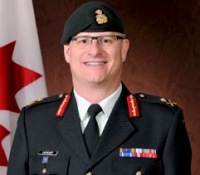 People who’ve actually experienced war place greater value on regulating warfare than those who haven’t.
People who’ve actually experienced war place greater value on regulating warfare than those who haven’t.
That appears to be one thought-provoking takeaway from People on War: Perspectives from 16 Countries, a report that the International Committee of the Red Cross released this morning.
More than 17,000 persons – in Afghanistan, China, Colombia, France, Iraq, Israel, Nigeria, Palestine, Russia, South Sudan, Switzerland, Syria (that is, Syrians in Lebanon), Ukraine, the United Kingdom, the United States, and Yemen – were surveyed between June and September  2016, “through online, face-to-face and computer-assisted telephone interviews.”
2016, “through online, face-to-face and computer-assisted telephone interviews.”
Time and again, persons in conflict-ridden countries showed more support for international humanitarian law:
► Of them, 84% agreed that it was wrong, and not “just part of war,” to “attac[k] religious and historical monuments in order to weaken the enemy” – compared with 72% in other states.
► And 73% in conflict states agreed that it was wrong, and not “just part of war,” to injure or kill humanitarian aid workers delivering aid in conflict zones – compared with 59% in other states.
Also notable were the variation in views on torture:
► Fully 100% in Yemen said torture is wrong and not “part of war.” Percentages dropped from there. Fewer than half the persons interviewed in Israel and Palestine said “wrong”; respectively, 44% and 35%.
► As for the United States, 54% called torture “wrong.” But when the question shifted somewhat – to whether “a captured enemy combatant” can “be tortured to obtain important military information” – the percentage of persons in the United States calling that wrong dropped to 30%, the 3d lowest among countries surveyed.
The survey presented the ICRC with an opportunity to reiterate the existence and importance of laws intended to protect civilians, persons no longer engaging in combat, and persons whom conflict has put to flight. These are issues we explored in our September 23 Georgia Law-ICRC event, “Humanity’s Common Heritage: Conference on the 2016 ICRC Commentary on the 1st Geneva Convention” (posts). On the matter of torture, for example, the report states:
“Torture and all other forms of ill-treatment are absolutely prohibited by international treaty and customary law. This applies to every State and to all parties to armed conflicts. There are no exceptions, whatever the circumstances. Whole communities are impacted by the corrosive effects of torture on society, especially when it goes unpunished, generating hatred and triggering a cycle of violence. What’s more, research shows that torture does not work, as the ‘information’ that is obtained is generally not reliable.”
The full report is available here.
(Cross-posted from Diane Marie Amann)
 Many conversations in the U.S. about situations of armed conflict – within civil society, academia, and the U.S. government – center on “national security law,” often drawing primarily from domestic law and military perspectives. International law is sometimes set aside in these discussions. This workshop aims to draw the international legal aspects of armed conflicts to the forefront of national security discussions.
Many conversations in the U.S. about situations of armed conflict – within civil society, academia, and the U.S. government – center on “national security law,” often drawing primarily from domestic law and military perspectives. International law is sometimes set aside in these discussions. This workshop aims to draw the international legal aspects of armed conflicts to the forefront of national security discussions.


 We’re honored that the Georgia Law alumnus leading that project, Geneva-based ICRC legal adviser
We’re honored that the Georgia Law alumnus leading that project, Geneva-based ICRC legal adviser  Dr. Henckaerts will be part of a public panel from 9:15 a.m.-12 noon in Georgia Law’s Hatton Lovejoy
Dr. Henckaerts will be part of a public panel from 9:15 a.m.-12 noon in Georgia Law’s Hatton Lovejoy  Courtroom. Speaking in that morning session will be: Oxford Law Professor
Courtroom. Speaking in that morning session will be: Oxford Law Professor  moderator, yours truly,
moderator, yours truly,  Amann
Amann Armed Conflict.
Armed Conflict.



